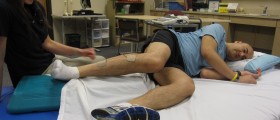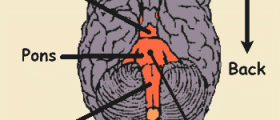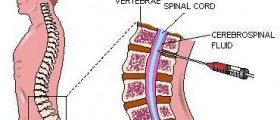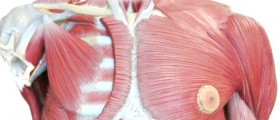
Nerves
Nerves innervate every single part of the body and even the slightest damage of their components is easily noticed. All the nerves can be classified into autonomic nerves, motor nerves and sensory nerves. Autonomic nerves are in charge with involuntary activities. Some of these activities include heart rate or temperature regulation. Motor nerves innervate muscles and are in charge with their contraction and relaxation. And finally, sensory nerves carry the signals from the skin, muscles and body organs to the brain which then interprets these signals as pain, pressure and other types of sensations.
Symptoms of Nerve Damage
The pain is most commonly present in nerve damage. The degree of the damage will most definitely show the intensity of pain. The damage may range from mild to severe one. In advanced stages and enormous damage of some nerves patient's life may be endangered.
The symptoms are connected to the very nerve and its field of innervation or its particular function.
For example, if specific autonomic nerves are damaged a person may not be able to feel chest pain caused by certain medical conditions such as heart attack or angina. This damage usually affects diabetics and is a part of general neuropathy. Additionally, damage of the autonomic nerves may result in excessive perspiration or insufficient perspiration. Lightheadedness may be additional symptom of this damage. If facial autonomic nerves have been damaged one may complain about dry eyes and insufficient production of saliva. Bowel and bladder malfunction can be also evident if autonomic nerves that innervate these organs have been damaged. Sexual dysfunction can develop as well.
The damage of the motor nerves usually results in weakness of muscles. If the damage is irreversible the muscle will eventually atrophy. Fasciculations or involuntary muscle contractions can be additional symptom of damaged motor nerves. And the most serious consequence is definitely paralysis.
In case that sensory nerves have been damaged one may not be able to feel pain or any other sensation. The numbness is evident and even disturbances in sensations such as prickling or tingling sensations may occur. Burning sensation is one more deviation of the sensorium.
In some cases even a combination of damage is possible i.e. the person may suffer from damage of two or all three types of nerves.
Causes and Treatment of the Nerve Damage
There is a variety of causes and according to the very cause a person requires specific treatment modality. The sooner the actual cause is established, the better are the chances that the nerve will restore its original function.











-Causes,-Symptoms,-Diagnosis,-Treatment_f_280x120.jpg)




Your thoughts on this
Loading...